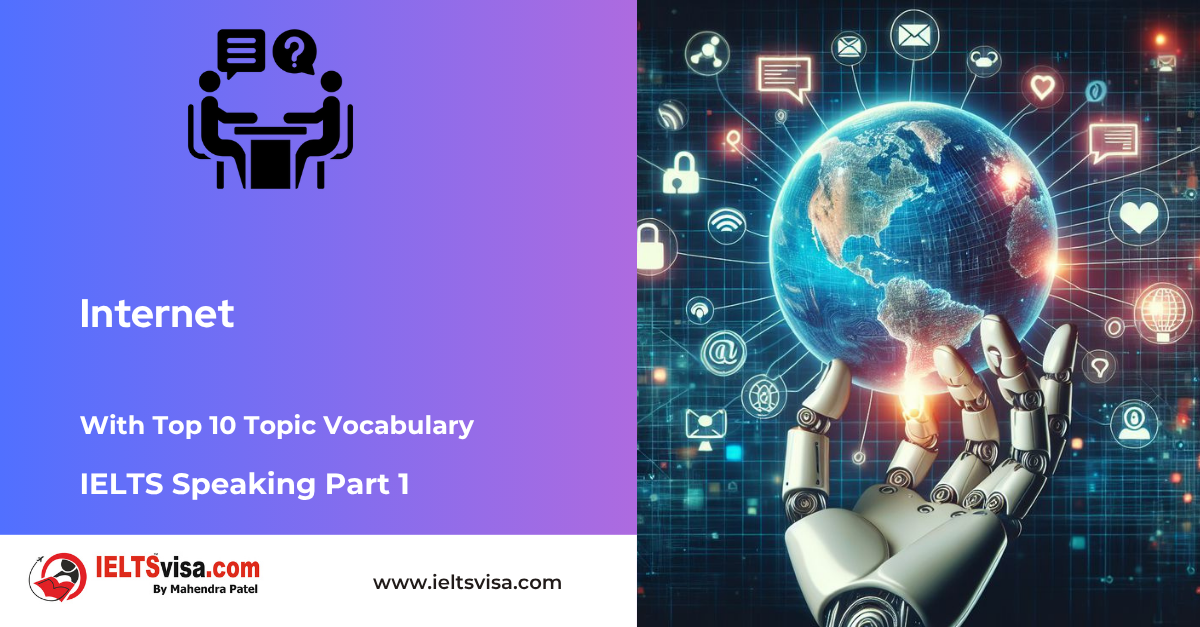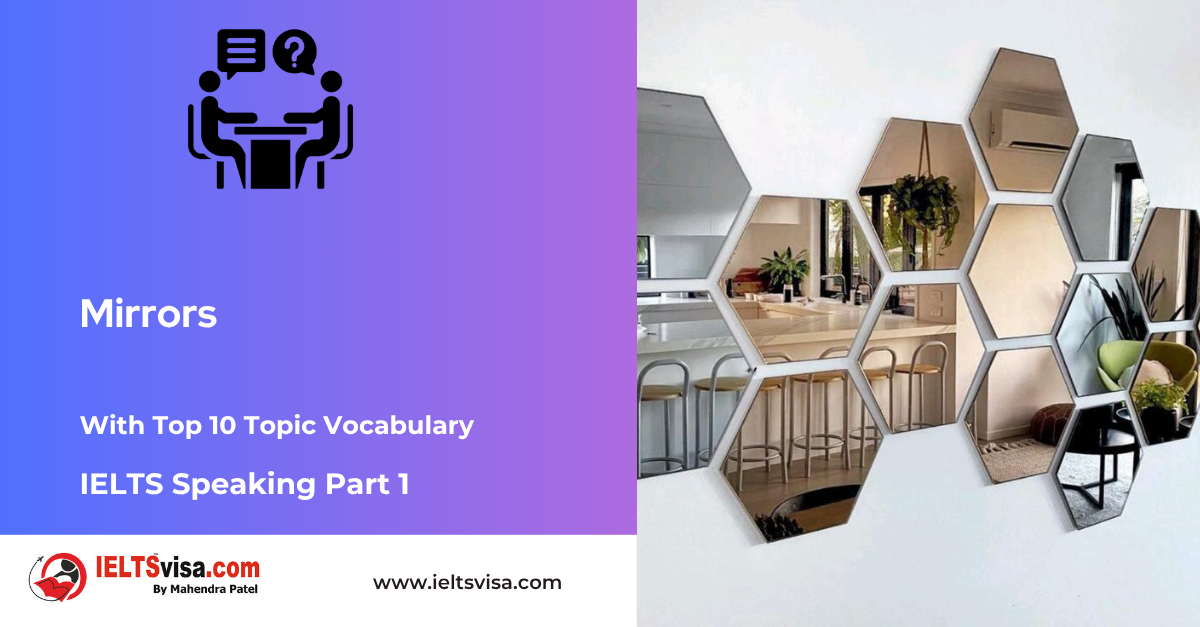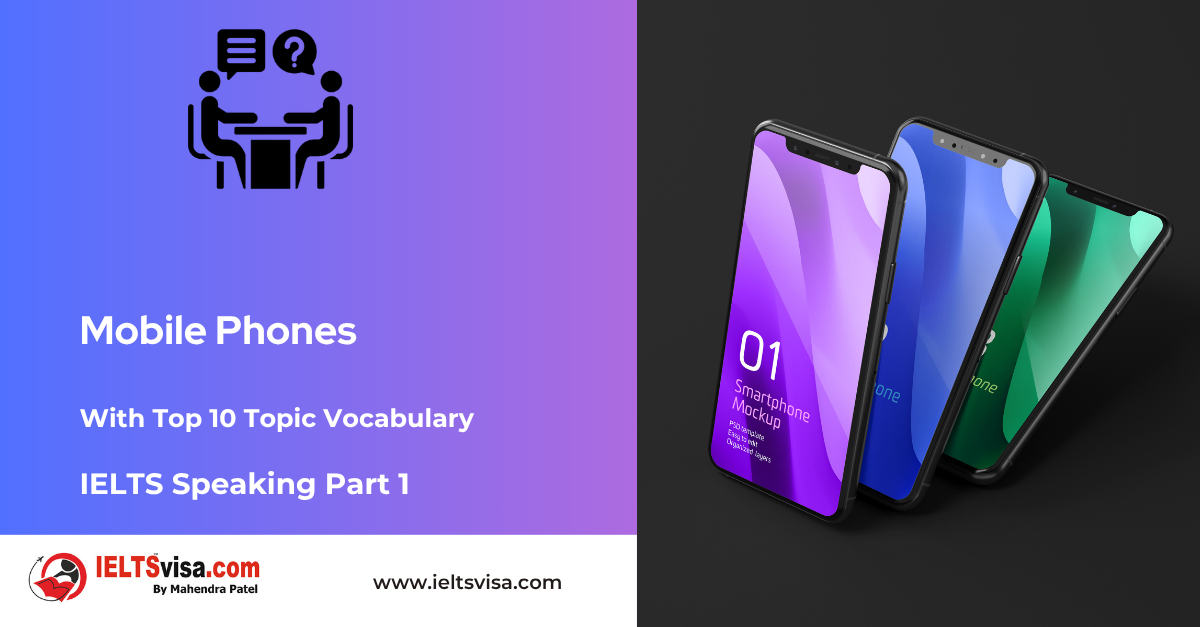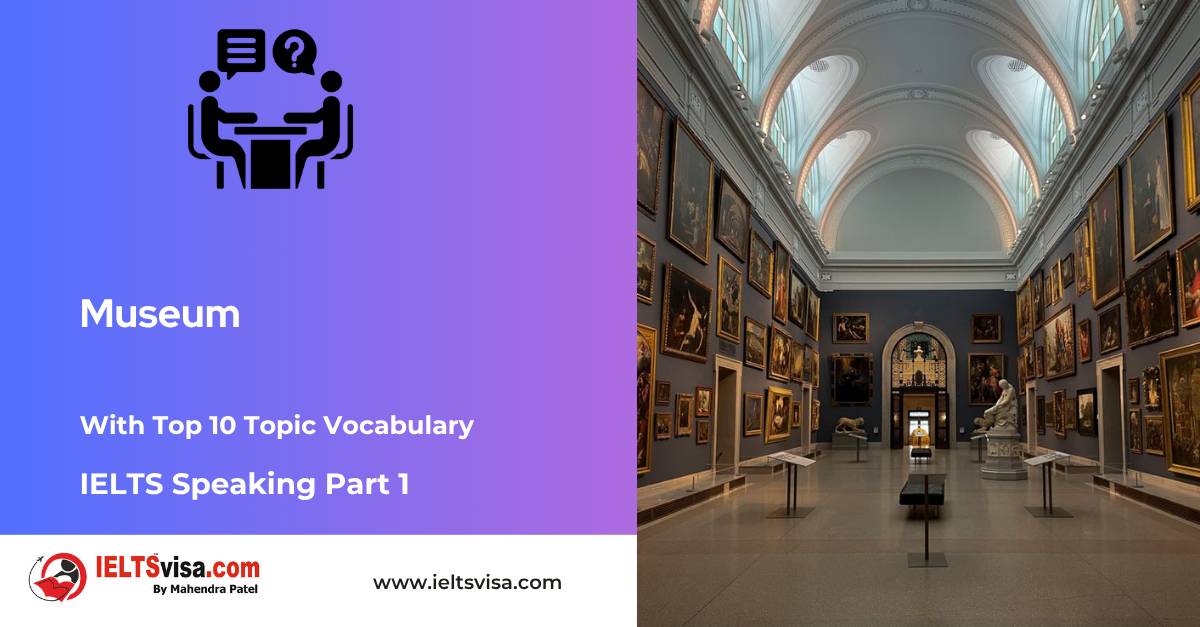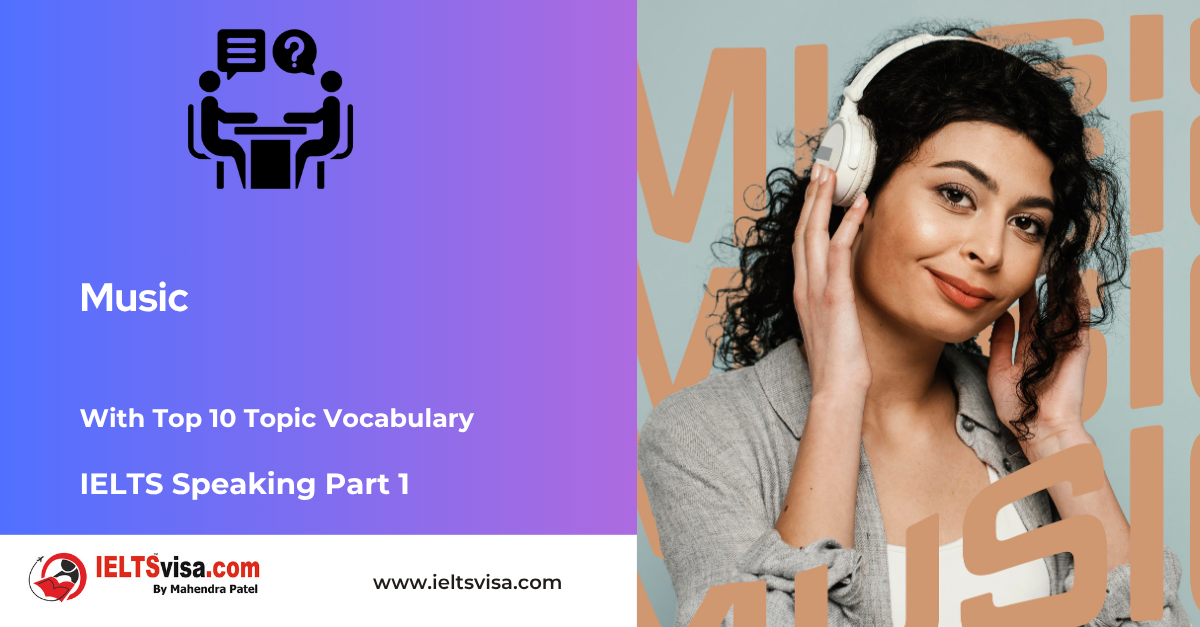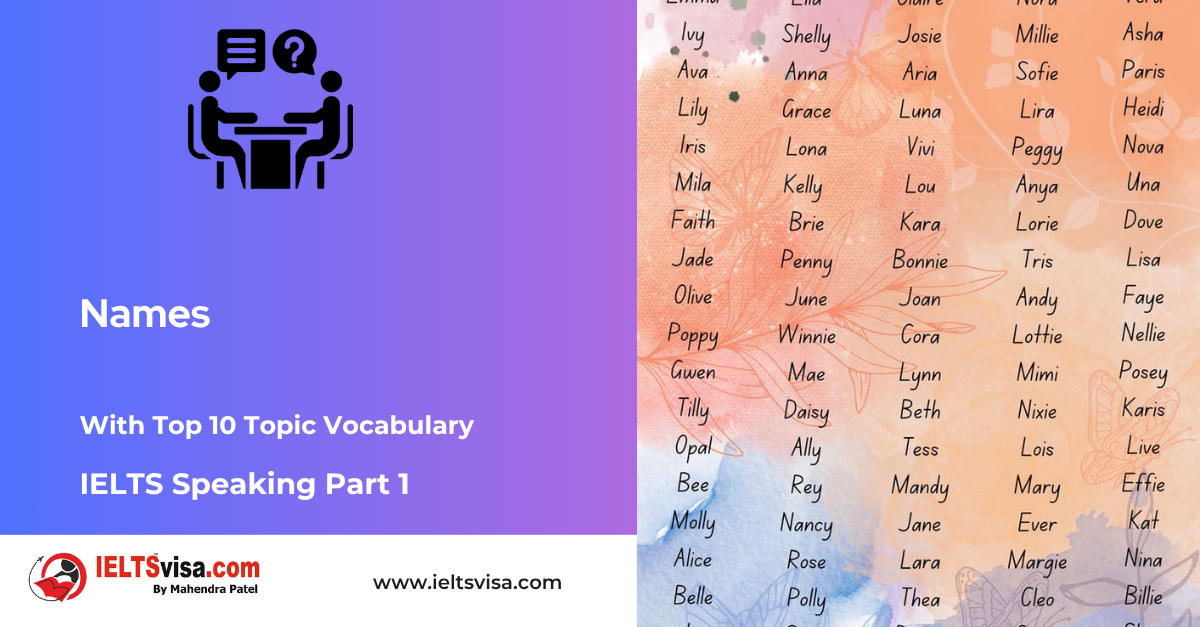IELTS Speaking Part 1 – Leisure Time
IELTS Speaking Practice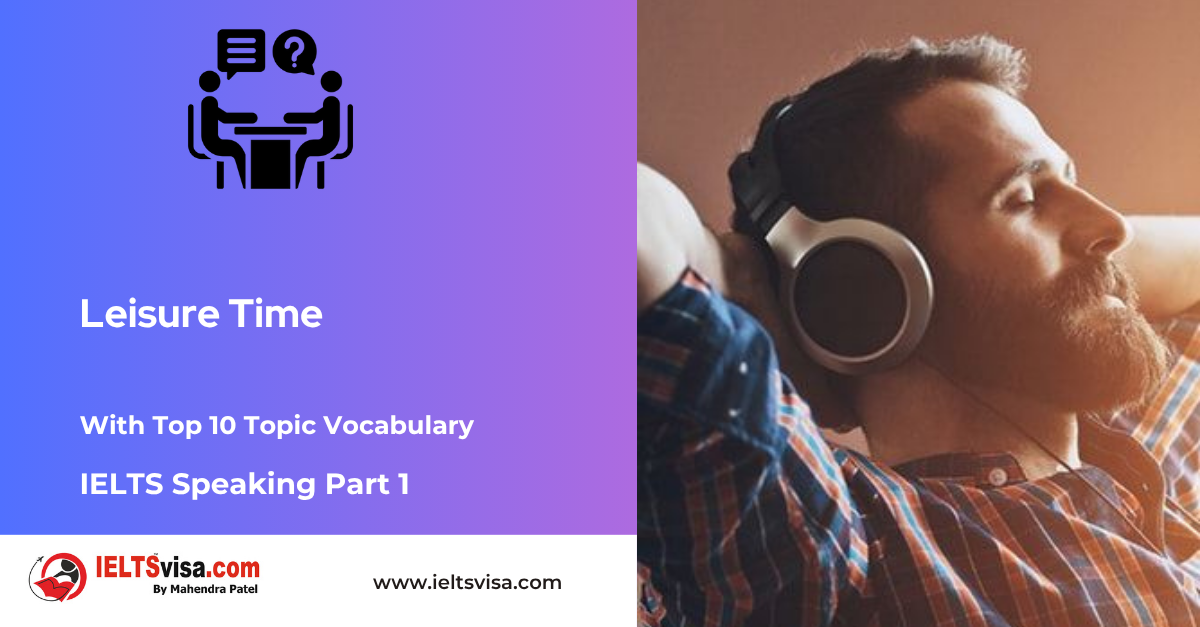
IELTS Speaking Part 1 – Leisure Time
Examiner: How do you usually spend your leisure time?
Candidate: I enjoy unwinding in different ways! Sometimes, I crave relaxation, so I might curl up with a good book or enjoy a soothing bath. Other times, I have more energy and might hike or explore a new part of town. Ultimately, my leisure activities depend on my mood and available time.
Examiner: Do you prefer spending your leisure time alone or with others?
Candidate: I enjoy both! Spending time with loved ones, catching up over coffee, or participating in a shared hobby can be fulfilling. But I also value solitude, allowing me to recharge and pursue individual interests, like reading or writing.
Examiner: Has the way you spend your leisure time changed over the years?
Candidate: Yes, definitely! I might have preferred more physically demanding activities or socializing in large groups in my younger days. Now, I appreciate a balance between social interaction and quieter pursuits. My leisure time choices have also evolved alongside my interests and responsibilities.
Examiner: Do you think it’s important to have leisure time?
Candidate: Absolutely! Leisure time is crucial for maintaining a healthy work-life balance. It allows us to de-stress, recharge our mental batteries, and explore our hobbies and interests. This can lead to improved productivity, creativity, and overall well-being.
Examiner: What are some challenges you face when trying to find leisure time?
Candidate: Finding free time can be tricky, especially with busy schedules. Juggling work, family commitments, and errands can leave limited time for leisure activities. Effective time management and prioritizing what truly brings me joy are key to ensuring I dedicate some time to myself.
Examiner: Do you think technology has changed the way people spend their leisure time?
Candidate: Technology has definitely impacted how we spend our free time. Streaming services offer a wide variety of entertainment options, social media allows us to connect with people instantly, and countless apps cater to various leisure interests. While technology offers new possibilities, it’s important to maintain a healthy balance and avoid neglecting real-life interactions and unplugged activities.
Examiner: Do you think people spend too much time on leisure activities nowadays?
Candidate:That depends! While leisure time is essential, striking a balance is important. Spending excessive time on passive entertainment like excessive gaming or mindlessly scrolling through social media might not be as rewarding as engaging in activities that promote creativity, learning, or physical well-being.
Examiner: What do you think is the ideal way to spend your leisure time?
Candidate: There’s no single “ideal” way, as it’s personal. However, I believe the best leisure time involves activities that bring you joy, allow you to relax and recharge, and potentially contribute to personal growth or satisfaction.
Examiner: Do you ever feel guilty about spending time on leisure activities when you have work to do?
Candidate: Not necessarily. Taking breaks and indulging in leisure activities helps me return to work tasks feeling refreshed and more focused. However, it’s important to manage my time effectively so that my leisure pursuits don’t negatively impact essential work commitments.
Examiner: Do you think leisure activities can teach you valuable life skills?
Candidate: Absolutely! Many leisure activities can be surprisingly enriching. For example, playing a musical instrument can teach patience and discipline, while team sports can enhance communication and teamwork skills. Leisure activities can also foster creativity, problem-solving abilities, and even discipline, depending on the activity pursued.
Examiner: Do you think leisure activities are more important for children than adults?
Candidate: Leisure time is crucial for both children and adults! Play allows children to learn and develop, explore their creativity, and socialize with peers. For adults, leisure activities provide a much-needed break from stress, allowing them to maintain mental and physical well-being. While the specifics of how we utilize leisure time might differ across age groups, its importance remains constant.
Examiner: Do you think spending money on leisure activities is necessary?
Candidate: Enjoying leisure activities doesn’t always require spending a lot of money. Many free or low-cost options exist, like visiting parks, exploring museums on free admission days, or participating in community events. However, occasionally splurging on a concert ticket or a weekend getaway can be a refreshing leisure time. The key is finding a balance between cost-effective and enriching activities.
Examiner: Can leisure activities bring people from different cultures together?
Candidate: Absolutely! Shared leisure activities can be a fantastic way to connect with people from different backgrounds. Participating in sports teams, joining cultural clubs, or simply enjoying music or food together can transcend language barriers and foster understanding and appreciation for diverse cultures.
Examiner: Do you ever plan your leisure activities in advance?
Candidate: Sometimes! Planning in advance helps secure tickets and ensure availability for more significant events like concerts or trips. However, I also enjoy spontaneity! Sometimes, unplanned adventures or activities discovered at the moment can be just as enjoyable and create lasting memories.
Examiner:Do you think your leisure activities will change as you get older?
Candidate: It’s likely! As our priorities and physical capabilities might shift with age, our leisure activities might also need to adapt. However, the core principles of finding joy, relaxation, and personal fulfilment through leisure time will likely remain constant throughout life.
Top 10 Topic Vocabulary for “Leisure Time”
|
Vocabulary |
Type |
Meaning |
Synonyms |
Antonyms |
Word Family |
Example Sentences |
|
Relaxation |
Noun |
The state of being free from tension |
Rest, leisure |
Stress, tension |
Relax (v), Relaxing (adj) |
After a long week at work, I look forward to some relaxation at the beach. |
|
Yoga is a great way to achieve relaxation and reduce stress. |
||||||
|
Hobby |
Noun |
An activity done regularly for pleasure |
Pastime, interest |
Chore, task |
Hobbies (n, pl) |
Gardening is my favourite hobby because it helps me relax. |
|
She took up painting as a hobby after retiring. |
||||||
|
Leisure |
Noun |
Free time when one is not working |
Free time, spare time |
Work, labor |
Leisurely (adj) |
During my leisure, I enjoy reading novels. |
|
They spent their leisure time travelling around the world. |
||||||
|
Unwind |
Verb |
To relax after a period of work or tension |
Relax, de-stress |
Stress, tense |
Unwinding (n) |
After the meeting, I like to unwind by walking in the park. |
|
A good book helps me unwind after a busy day. |
||||||
|
Recreation |
Noun |
Activities are done for enjoyment when not working |
Amusement, entertainment |
Work, duty |
Recreational (adj) |
Sports are a common form of recreation for many people. |
|
The park offers various recreation facilities like tennis courts and a swimming pool. |
||||||
|
Socializing |
Verb |
Participating in social activities |
Mingling, interacting |
Isolating, withdrawing |
Socialize (v), Social (adj) |
Socializing with friends on weekends is very important to me. |
|
He enjoys socializing at community events and gatherings. |
||||||
|
Solitude |
Noun |
The state of being alone |
Isolation, seclusion |
Companionship, crowd |
Solitary (adj) |
Sometimes, I seek solitude to recharge and reflect. |
|
The writer found inspiration in the solitude of the mountains. |
||||||
|
Spontaneity |
Noun |
The quality of being spontaneous, doing something without planning |
Impulsiveness, unpredictability |
Planning, deliberation |
Spontaneous (adj) |
Travelling with spontaneity can lead to unexpected and exciting adventures. |
|
Her spontaneity often brings a refreshing change to our routine plans. |
||||||
|
Pursuit |
Noun |
The action of following or engaging in a particular activity |
Activity, quest |
Avoidance, neglect |
Pursue (v), Pursuing (adj) |
She dedicated her weekends to the pursuit of photography. |
|
His lifelong pursuit of knowledge has made him a well-rounded individual. |
||||||
|
Fulfillment |
Noun |
The achievement of something desired, promised, or predicted |
Satisfaction, contentment |
Frustration, dissatisfaction |
Fulfil (v), Fulfilling (adj) |
Finding fulfilment in your hobbies can significantly enhance your quality of life. |
|
Her job provides her with a sense of fulfilment and purpose. |
||||||
|
Recharge |
Verb |
To restore energy or strength |
Refresh, rejuvenate |
Exhaust, drain |
Recharging (n) |
Taking a short nap in the afternoon helps me recharge for the rest of the day. |
|
Weekends at the cabin are perfect for recharging my batteries. |
||||||
|
Creativity |
Noun |
The use of imagination or original ideas to create something |
Imagination, innovation |
Unimaginativeness, dullness |
Creative (adj), Create (v) |
Painting and drawing are excellent outlets for my creativity. |
|
Her creativity shines through in her unique jewellery designs. |

Our Books
Master IELTS Speaking Part 1
IELTS Writing Task 1 Book
IELTS Writing Task 2 Book
Practice IELTS Other Modules
IELTS Listening
The IELTS Listening test assesses how well you can understand spoken English in various contexts. It lasts about 30 minutes and is divided into four sections with a total of 40 questions. The listening tasks become increasingly difficult as the test progresses.
IELTS Academic Reading
The IELTS Academic Reading section assesses your ability to understand and interpret a variety of texts in academic settings. It is designed to evaluate a range of reading skills, including skimming for gist, reading for main ideas, reading for detail, understanding inferences, and recognizing a writer's opinions and arguments.
IELTS Speaking
The IELTS Speaking test assesses your ability to communicate in English on everyday topics. It lasts 11-14 minutes and consists of three parts: introduction, cue card, and a discussion based on the cue card topic.
IELTS General Reading
IELTS General Reading tests your ability to understand and interpret various types of texts. Here are some key areas and types of content you can expect to encounter in the reading section, along with tips for effective preparation.
IELTS Academic Writing Task 1
In IELTS Academic Writing Task 1, you are presented with a visual representation of information, such as graphs, charts, tables, or diagrams, and you are required to summarize, compare, or explain the data in your own words.
IELTS General Writing Task 1
In IELTS General Writing Task 1, you are required to write a letter based on a given situation. The letter can be formal, semi-formal, or informal, depending on the prompt. Here’s a breakdown of the key components to include in your letter
IELTS Academic Writing Task 2
In IELTS Academic Writing Task 2, you are required to write an essay in response to a question or topic. Here’s a guide to help you understand the essential elements of this task
IELTS Exam Tips
To succeed in the IELTS exam, practice regularly, familiarize yourself with the test format, improve your vocabulary, develop time management skills, and take mock tests to build confidence.
Grammer for IELTS
Grammar is the foundation of effective communication in English. Understanding tense usage, subject-verb agreement, and sentence structure enhances clarity and coherence in writing and speaking.
Vocabulary for IELTS
Vocabulary plays a crucial role in the IELTS (International English Language Testing System) exam, especially in the Speaking and Writing sections. Here’s an overview of why vocabulary is important and how it impacts your performance
RECENT IELTS SAMPLES QUESTIONS AND ANSWERS
IELTS Speaking Part 1 – Internet
IELTS Speaking Part 1 - Internet Examiner: Do you use the Internet? Candidate: Absolutely! The Internet has...
IELTS Speaking Part 1 – Mirrors
IELTS Speaking Part 1 - Mirrors Examiner: Do you often look at yourself in the mirror?Candidate: I often look...
IELTS Speaking Part 1 – Mobile Phones
IELTS Speaking Part 1 - Mobile Phones Examiner: Do you have a mobile phone? Candidate: Absolutely! Mobile...
IELTS Speaking Part 1 – Museum
IELTS Speaking Part 1 - Museum Examiner: Do you like visiting museums?Candidate:Absolutely! Museums offer a...
IELTS Speaking Part 1 – Music
IELTS Speaking Part 1 - Music Examiner: Do you like listening to music?Candidate: Yes, I love listening to...
IELTS Speaking Part 1 – Names
IELTS Speaking Part 1 - Names Examiner: How did your parents choose your name?Candidate: There are a few...

